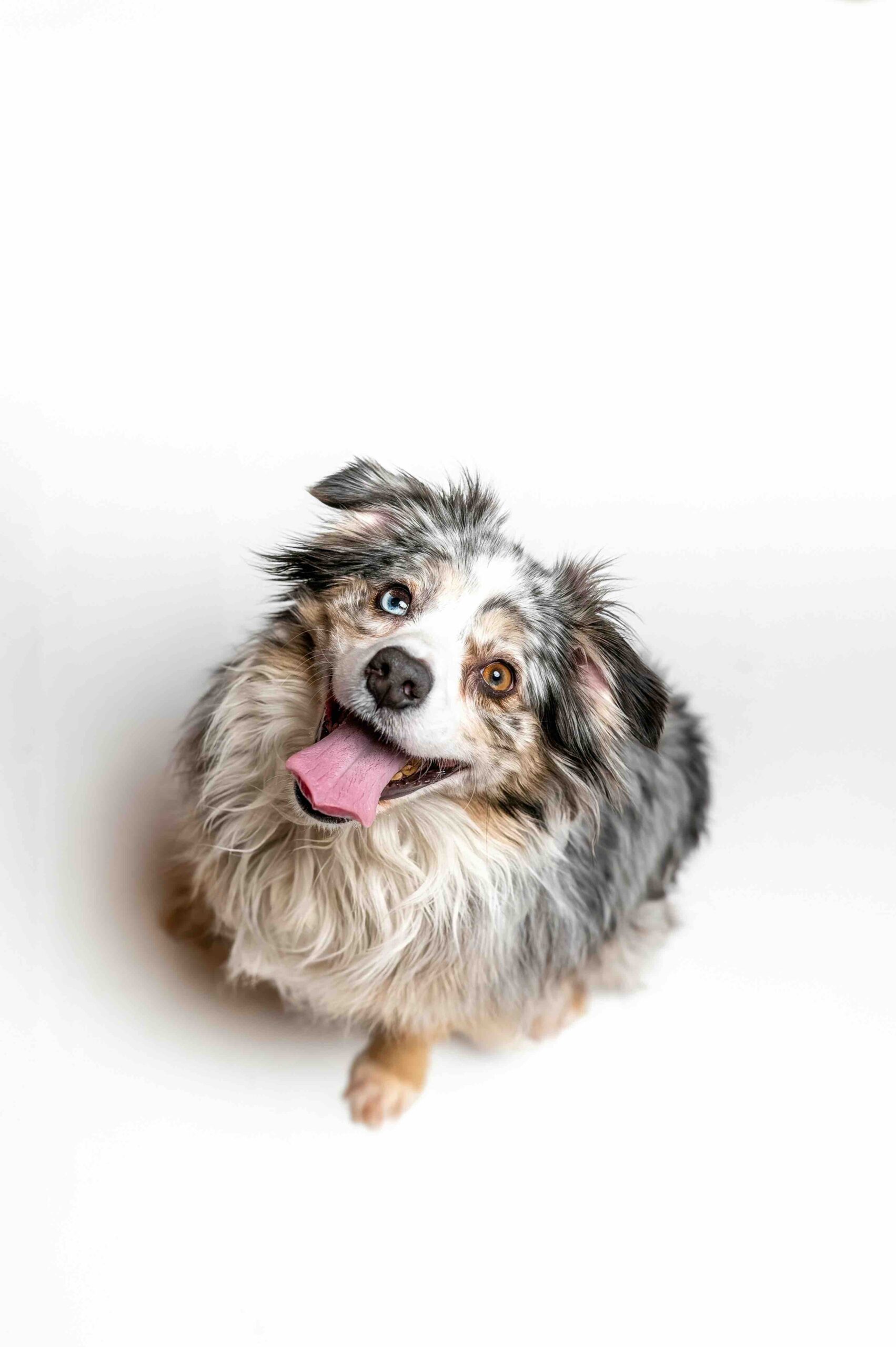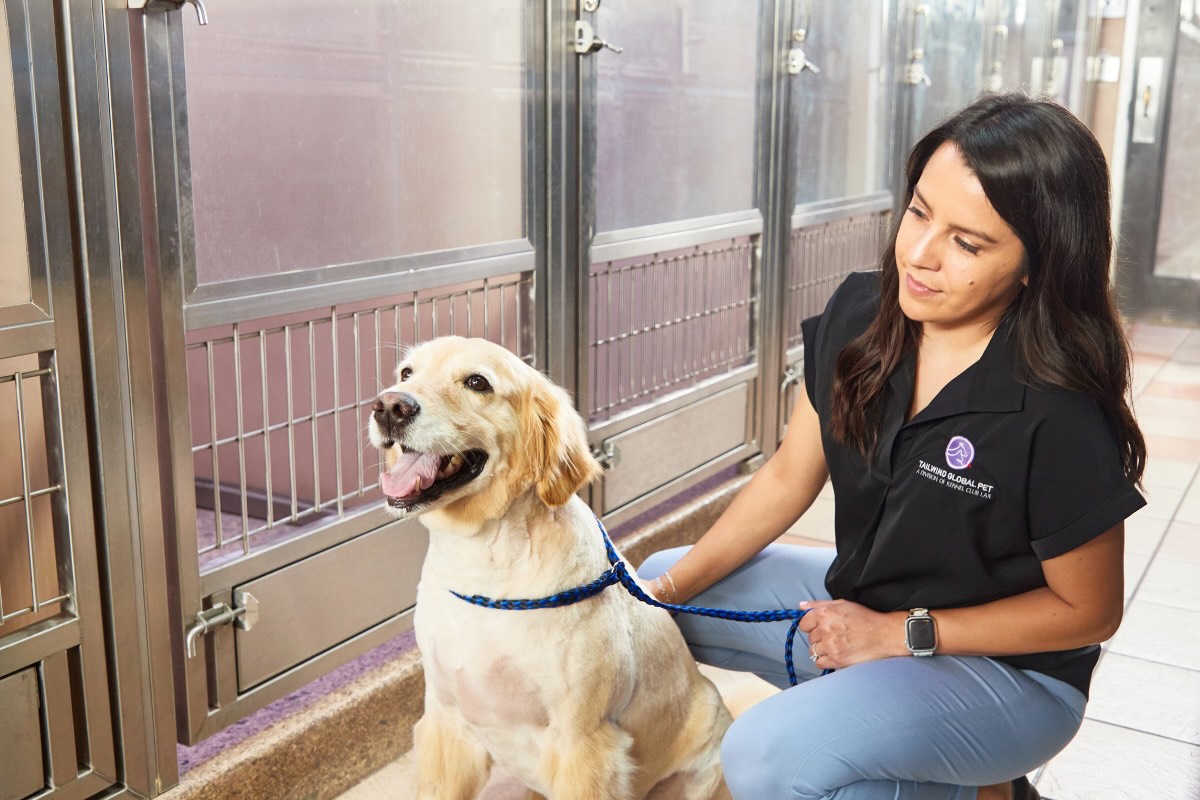
Bringing your pet to Canada? We’ve handled hundreds of pet exports to The True North — let us help with yours.
Traveling to Canada with a pet is straightforward. For those coming from the U.S., it’s almost like taking a domestic trip in many ways. Unlike international destinations with complex import rules, mandatory titers, and quarantines, Canada’s regulations are clear and manageable.
There are still a few important things to consider, as the rules vary depending on how your pet is traveling and their age. This guide walks you through everything you need to know about Canada’s import rules and common regulations set by the airlines, too, for a stress-free journey.
Eligible Pets and Country Restrictions
There is no federal breed-specific legislation in Canada, but there may be restrictions at the provincial and municipal levels, in addition to limits set by the airline.
Eligible Pets
Canada does not have breed-specific bans on imported pets at the national level. These kinds of regulations are handled locally.
Ontario’s Dog Owners’ Liability Act (DOLA), for example, has been in place since the 1990s, but it was amended to include a pit bull-specific ban in 2005. The law effectively bans the breeding, importing, transferring, or acquiring of the following breeds in Ontario:
- Pit bull terriers
- Staffordshire bull terriers
- American Staffordshire terriers
- American pit bull terriers
Other Canadian cities and municipalities may have restrictions in place that aren’t blanket bans, but can make it more challenging to live with breeds defined as “dangerous.” That includes muzzles, short leashes, and visible warning signage at your residence for these breeds.
Finally, the airline you choose for your pet’s air travel may have additional restrictions in place for both strong-jawed or snub-nosed breeds. If you’re flying with a pit bull-type dog to a region in Canada that allows them, the airline may ask that you do so in a reinforced kennel.
The airline may also have limits on kennel size, especially on smaller planes, making international travel with a larger dog more challenging.
Approved Countries
Canada does not have an approved list of countries eligible for pet import, but specific requirements vary somewhat depending on the origin country’s rabies risk.
Pets coming from countries designated as rabies-free, like Australia, New Zealand, and the United Kingdom, can fly on a Rabies Country-Freedom Certificate. This is in place of a rabies vaccination certificate. The U.S. isn’t considered rabies-free, so you’ll still need proof of rabies vaccination from the U.S.
The rules change if animals are flying for commercial purposes. Canada currently bans the importation of live animals from countries at high risk for rabies.
Planning an international flight for your pet? We can help.
Microchip and Vaccinations
Canada does not require microchipping to meet import requirements. Pets should travel with a valid rabies certificate unless they’re coming from a country identified as rabies-free.
Microchip
Canada doesn’t have a microchip requirement for pets imported as personal pets. If you’re shipping a dog under 8 months of age under the commercial category (e.g. dogs for sale or breeding purposes), they must be microchipped.
No matter a destination country’s requirements, we always recommend pet owners get their pets an ISO-compliant microchip. These are easily readable by universal scanners, offer some protection if your pet were ever to get lost, and are necessary for your return trip to the U.S.
Vaccinations
Pets (e.g. dogs, cats, ferrets) coming from the U.S. and any other country not currently identified as rabies-free must travel to Canada with a valid rabies vaccination certificate. Rabies certificates should be issued by a licensed vet.
Unlike commercial pets, there is no mandatory waiting period after vaccination before the dog can enter Canada. Animals imported for commercial reasons must wait 28 days after vaccination before they can travel to Canada.
Pets under 3 months old that are not yet eligible for their rabies shots will need proof of their age instead.
Certified assistance dogs, like guide dogs, hearing dogs, or service animals, aren’t required to travel with a rabies certificate. Assume that the Canadian Food Inspection Agency (CFIA) will require proof of your pet’s service status in the form of documentation from the certifying organization.
There are no additional vaccine requirements for your travel to Canada, but your vet may have some recommendations. That may include protection against the following for dogs:
- Canine distemper
- Infectious canine hepatitis
- Canine parvovirus
- Leptospirosis
The following vaccines are often recommended for traveling cats:
- Feline panleukopenia (enteritis)
- Feline rhinotracheitis
- Feline calicivirus

Blood Tests and Treatments
Canada does not require rabies titers or additional tests or treatments for import into the country. However, it’s best practice that traveling pets are treated for internal and external parasites before travel abroad.
Import Documents
Import documents vary somewhat based on the age of your pet:
- Pets under 3 months of age need proof of their age from a licensed vet.
- Pets between 3-8 months of age need a valid veterinary certificate of health if they are traveling unaccompanied. This includes pets traveling as cargo. Accompanied pets only need their rabies certificate.
- Pets older than 8 months of age only need a rabies certificate to meet Canada’s requirements.
That said, the majority of airlines require that pets travel with a health certificate from a licensed veterinarian anyway to show that they are healthy enough to fly.

For travel or pet relocation from the U.S., this is covered by an APHIS Form 7001. Forms cover a pet’s vaccination history and any other treatments or health concerns. Again, for pets traveling unaccompanied who are under 8 months of age, health certificates are in addition to, not in place of, a rabies certificate.Health certificates don’t need to be endorsed by the U.S. Department of Agriculture (USDA), as with many destinations. They should be completed within 10 days of your pet’s flight.

Airline Information
There are several carriers that offer pet-friendly flights from the U.S. to Canada, and each comes with its own rules and regulations.
Our preferred option is WestJet. Their flights are generally quite affordable, and depending on your final destination, you may even get your pet on a direct flight. If layovers are necessary, we work with pet owners to incorporate comfort stops for a safe journey.
The airline’s cargo arm, WestJet Cargo (Pet’Air), also flies pet breeds often banned from travel, but with additional requirements. Breeds defined as strong-jawed breeds must fly in special reinforced crates. If you need one, we provide custom-built CR82 crates for those breeds.
WestJet Cargo also flies brachycephalic breeds, or snub-nosed pets, with additional veterinary health checks, outside of July 1-Sept. 15. The airline reserves the right to extend that embargo depending on predicted temperature swings during your pet’s flight.
Hairless breeds of dogs and cats require a special waiver to travel between Nov. 1-March 31. (This waiver is only available to approved shippers and WestJet Cargo account holders.)
Air Canada is another option for travel from major hubs around the U.S. to cities like Toronto Pearson International Airport and Montréal-Pierre Elliott Trudeau International Airport.
It’s important to note that strict in-cabin pet policies implemented on June 1, 2025, make it difficult for pet owners to fly cats and dogs in-cabin with the airline. As per new rules, soft-sided pet carriers should be no more than 8 inches tall unless you’re traveling in business class, in which case you’re allowed 11 inches. The average carrier height is about 11 inches.
The airline’s cargo arm, AC Animals, is a likelier option for pets who don’t meet those new requirements. Cargo service must be booked through Air Canada Cargo, so you’ll need to contact them directly to arrange for a shipment.
Pets coming to Canada from abroad (this does not apply to the U.S.) must work with a booking agent registered with the International Pet and Animal Transportation Association (IPATA).
Quarantine
There is no quarantine requirement for pets traveling to Canada, as long as they meet all rules and regulations for import into the country. Pets may also be quarantined if they show any signs of infectious disease upon arrival.
Customs Clearance
While in some ways, travel to Canada from the U.S. may seem as simple as domestic travel, you’re still crossing international borders. That means you and your pet are subject to customs clearance on the other side.
All pets must be declared at the Canada Border Services Agency (CBSA) inspection line, where Canadian officials may check their vaccination and relevant health documents. They may also do a quick visual exam to check the pet for signs of illness.
There are no import fees associated with your arrival in Canada, and your pet should be released to you immediately after those border checks if everything is in order. Pets traveling back to the U.S. from Canada must meet U.S. Centers for Disease Control and Prevention (CDC) requirements. Assuming they’ve only been to Canada, with no trips to high-risk rabies countries in between, that entails filling out a CDC Dog Import Form.
How Tailwind Can Help
We know that traveling to a neighboring country like Canada can feel daunting when your pet is involved. From paperwork to airline requirements and border checks, there are plenty of details to manage.
At Tailwind, we’re here to guide you through every step of your pet’s journey. Our goal is always your complete peace of mind and your pet’s safety, comfort, and well-being.

Ready to get started? Each situation is a little different, so contact us to get an idea of the costs involved.
See What Our Clients Have to Say

“Got referred to Tailwind Global Pet by Manoir Kanisha in Montreal (QC, Canada) to handle the customs part of my 2x cats relocation (Praline & Big Foot) from Montreal, QC Canada to Las Vegas, NV, USA.
James took care of answering all my questions and making sure everything went smooth during the whole process, from planning to the actual transport.”
– Samuel C.

“Our dog Nala is a 5 year old cavoodle and she is a very important part of our family.
When we had to relocate from Canada to Australia, we knew it’d be a long journey for her and an even longer quarantine once she arrived but we couldn’t bear the thought of leaving her behind.
I cannot express just how grateful we are to Alex and Tailwind Global Pet for all their help and hardwork! We would recommend this company 100%!!!”
– Luba J.

“Ozzy our son’s French bulldog travelled from LA to Quebec City Canada with Tailwind.
Alex was responsible for the trip and we give him a 100% note. From the start he was professional and showed deep concerns about the safety of Ozzy. He helped us get everything needed from vaccines to ground transportation. During every hour of the trip they send us photos of Ozzy in the different locations he was.”
– Andre V.
